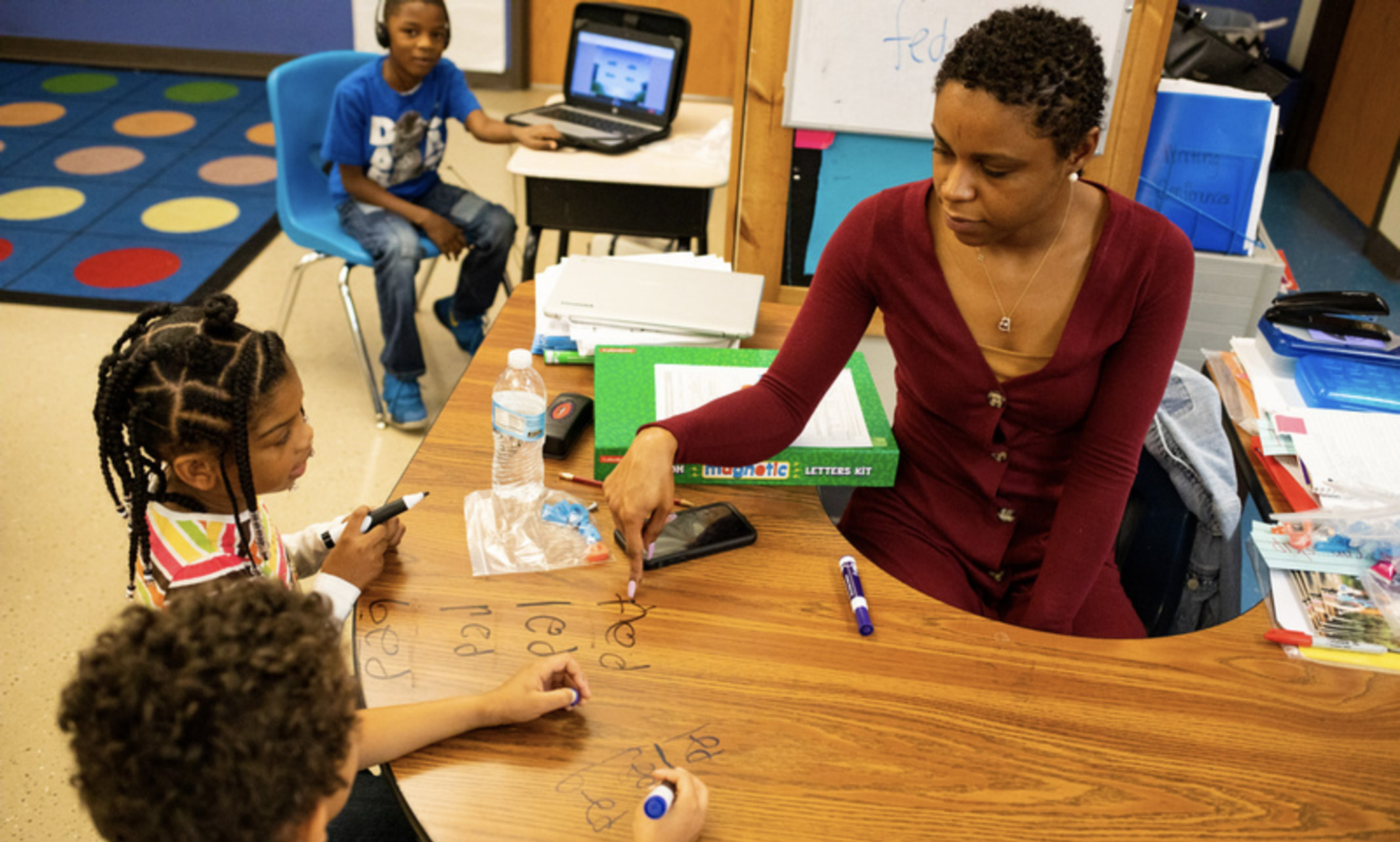The Institute of Urban Education within the UMKC School of Education is committed to improving student success in urban schools.
While the UMKC School of Education has been successfully training students for teaching and leadership positions in urban schools for years, their current priority is exponentially expanding the number of graduates who are prepared to meet the unique challenges of teaching in the urban core, challenges that have made life more difficult for students, parents and teachers due to the current COVID-19 pandemic and the resurgence of the Black Lives Matter movement. Community leaders Leo Morton and Jerry Reece are leading the campaign to expand the program’s capabilities and ultimately long-term student success.
Morton and Reece, UMKC trustee and chair emeritus of ReeceNichols Real Estate, both attended public schools. Morton grew up in Birmingham, Alabama, in the 1950s and 1960s.
“It was totally segregated,” he says. “All my teachers were African American. Given that teaching was one of the best jobs you could have then, they were the best and the brightest and fully engaged.”
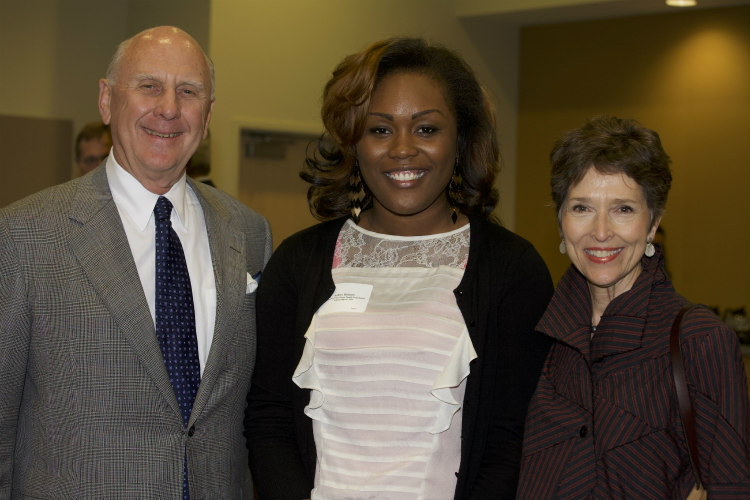
Reece, a Kansas native, spent his formative years in a small town on the northwestern tip of Washington state.
“It was like going to Alaska,” Reece says. “There were no people of color, so I had the opposite experience of Leo.”
“It was the same experience!” Morton says.
Despite the disparity of their landscapes and the similarities of the uniformity of their classrooms, both men agree that the significance of the messages that children receive about their opportunities for success are universal.
“I think the environment in the urban core is a huge influence on what happens in our classrooms,” Morton says. “When you live in an environment where you grow up believing that by the time you’re 25 years old you’re going to be dead or in prison, what value do you see in math and science?”
“I’ve heard Leo tell the story about how his dad would tell people that he and his brother were going to be engineers when they grew up,” Reece says. “He set them on the right path.”
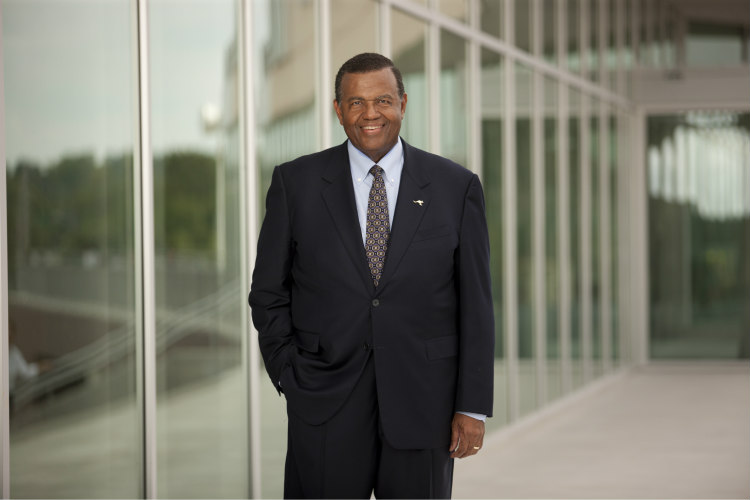
“I’ve heard people attribute the problem in urban schools to students and parents,” says Morton, UMKC chancellor emeritus and president and chief operating officer of DeBruce Companies. “But when you look for an answer, you need to understand the problem. I can credit my whole career on having the right parents. You’re fortunate if you’re born to parents who really understand what it takes to succeed and can provide the exposure to the right kind of issues. But if a child is in the situation where the parents don’t provide that, the community needs to step in.”
Student success
Both men agree that the Institute for Urban Education is readying their students for success. The achievements of graduates of the program reinforce that this is the case.
Asha Moore (B.A. ’09 Elementary Education, M.A. ’14 Educational Leadership) is the dean of students at the Academy for Integrated Arts in Kansas City. She is a member of the first class of graduates from the Institute for Urban Education program. Moore was born in Florida and attended a predominately Black school in an urban neighborhood where she was excelling academically.
When Moore’s family moved to Olathe, Kansas, when she was in fourth grade, she was suddenly in the minority.
“It took some adjustment,” Moore says. “I struggled at first and it was a surprise. When I finally talked to my brother, he assured me that I was going to be okay.”
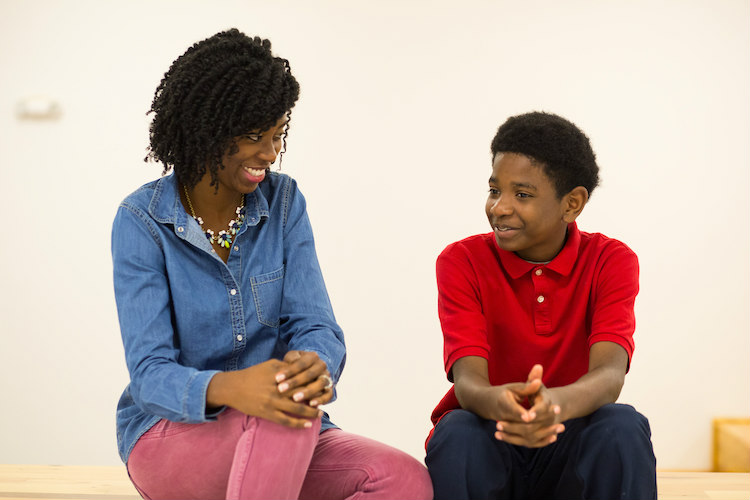
Moore did make a successful adjustment and decided that she wanted to be a teacher because she wanted to make children feel as if they could prosper anywhere. She enrolled in the School of Education at UMKC, but she did not join Institute for Urban Education until her second year.
“Other students encouraged me to join. I had already decided that I was going to teach in an urban school and the scholarship was helpful.”
Moore feels the program prepared her for the unique challenges that she’s faced.
“When you’re in an urban school, it helps if you can be responsive in your teaching and culturally relevant. We need to meet students where there are and help them think critically.”
Moore says her experience at the Institute for Urban Education was a solid foundation for her career.
“The staff was great – not just teaching, but wanting us to learn and getting to know us.”
“When I decided to be a teacher, I knew I wanted to give students more than I got. Fewer than 10 percent of the kids I went to high school with went to college. I wanted to help kids make it.”
She is still friends with several of the people in her cohort. Destiny Flournoy, B.A. Education ’09, M.A. Education Administration ’17, was part of that first Institute for Urban Education class.
“When I decided to be a teacher, I knew I wanted to give students more than I got,” Flournoy says. “Fewer than 10 percent of the kids I went to high school with went to college. I wanted to help kids make it.”
Needed now more than ever
The current COVID-19 pandemic and the resurgence of the Black Lives Matter movement have added to the challenges of teaching in general, but in the urban core even more significantly.
“Teachers had to change direction so quickly,” says Jennifer Waddell, director of the Institute for Urban Education. “It really put the spotlight on the complexities of teaching and the services that schools provide, including providing meals for students.”
Waddell notes that the Institute for Urban Education focuses on teachers’ impact on how students see the world.
“How to be racist or not racist, how to be fair or unfair, as well as other issues, are learned behaviors. Children are affected by what they see adults do — particularly teachers. We teach what we call ‘mirrors and windows.’ Their students should be able to see themselves in what they’re learning and they should also be learning about other people and their perspectives.”
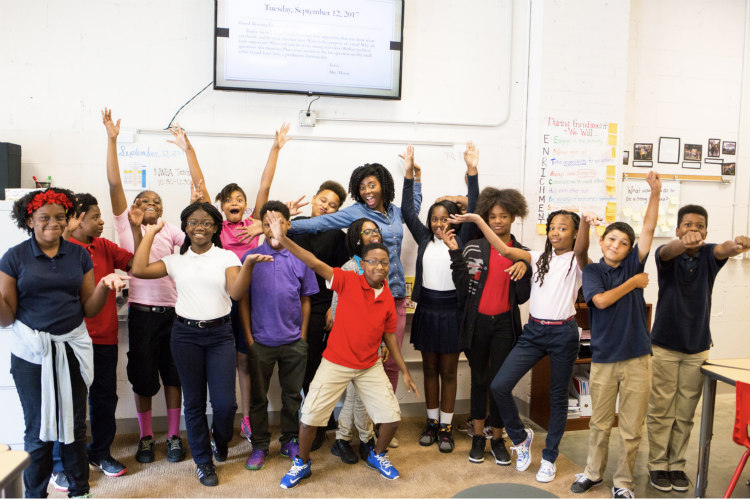
Waddell says that teachers and schools have a unique opportunity.
“Teachers really have the opportunity to help create individuals who can work together and work for the good of everyone,’’ Waddell says. “That’s why it’s important for everyone to have an equitable education, so everyone — regardless of the zip code they were born into — has career opportunities.”
Waddell says that Morton’s father was instinctually instilling something that education academics write books about.
“We instill in our teachers the need to put supports and strategies in place and to believe that every child can succeed, because there is motivation in knowing that someone believes we can,” Waddell says.
“Ideally, we would like to have a significant endowment so we can guarantee scholarships every year. But annual giving also gives us the opportunity to respond to specific needs and emerging priorities.”
Waddell says that the Institute for Urban Education has started a campaign to meet the demand for committed teachers in the urban core and to provide the resources that the school needs to prepare more students.
“Ideally, we would like to have a significant endowment so we can guarantee scholarships every year. But annual giving also gives us the opportunity to respond to specific needs and emerging priorities.”
Morton and Reece are confident that the community will respond to the opportunity to enhance schools in the urban core.
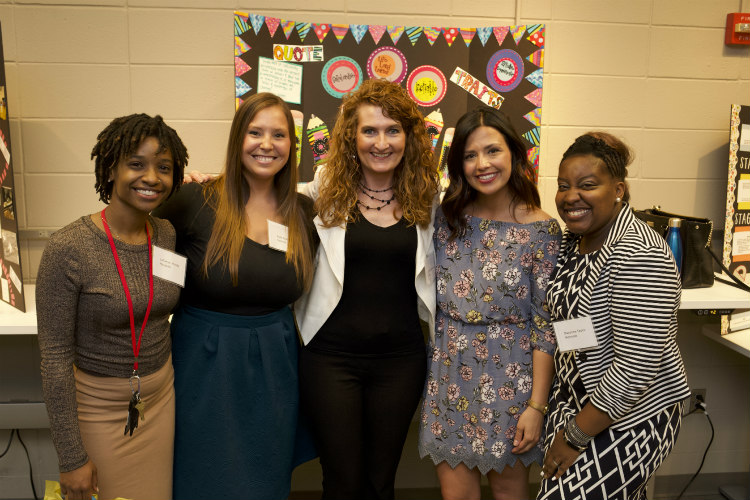
“Of all the nonprofits I’m involved with, Institute for Urban Education has the most potential to have the greatest impact, because we have the potential to chip away at the inequities in education by producing teachers of color,” Reece says. “The funds we raise will help close the gap and help these young people succeed.”
Morton says that while he and Reece are chairing this recent campaign, they are committed to Institute for Urban Education for the long term.
“I don’t have a drive-thru mentality about this,” Morton says. “We are researching and measuring results. We have to have patience and the conviction that we are investing in something that is going to make a difference in the long term. That’s what sets us apart from other programs.”
For more information or to make a contribution to the Institute of Urban Education, please contact Shelly Doucet at doucets@umkcfoundation.org or 816-235-6025

